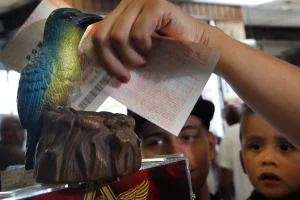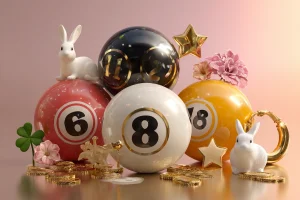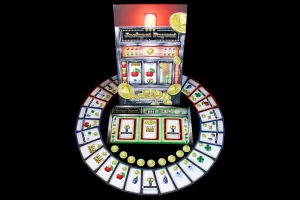Community-driven Jackpots: The Smart Guide to Office Pools, Syndicates, and Solid Agreements
Let’s be honest. The dream of hitting a massive lottery jackpot is a powerful one. But the odds? Well, they’re famously astronomical. That’s where the magic of the group comes in. Community-driven jackpots—office pools, lottery syndicates, whatever you call them—turn a solitary long shot into a shared, social, and frankly, more statistically sensible endeavor.
It’s not just about buying more tickets. It’s about trust, management, and a clear plan for what happens if you actually win. Because that’s when things can get messy. Here’s the deal: we’re diving into how to run these pools smoothly, manage the syndicate like a pro, and why a simple agreement isn’t just paperwork—it’s friendship insurance.
Why the Group Play? More Than Just Better Odds
Sure, the math is a big draw. Pooling funds means you can cover more number combinations, which does inch the odds a tiny bit more in your favor. But honestly, the real appeal is often softer, more human. It builds camaraderie around the water cooler. It gives you a few minutes of shared “what-if” fantasy with colleagues or friends. That weekly conversation—”Can you imagine?”—is a genuine little boost of dopamine and connection.
That said… the flip side is the potential for drama. A lack of clarity can turn a windfall into a windstorm of lawsuits and broken relationships. I’ve seen stories—and you probably have too—about the office pool that won big and then splintered because someone claimed they were in for that week, or the ticket was bought with “their” numbers. It’s a classic case of an ounce of prevention being worth millions of dollars of cure.
The Nuts and Bolts of Syndicate Management
Okay, so you’re ready to start or join a pool. Let’s talk syndicate management. Think of it like running a tiny, very hopeful, non-profit club. The key is transparency. Brutal, repetitive, almost boring transparency.
1. The Designated Organizer (The Captain)
Every group needs one clear point person. This isn’t just about collecting cash. The organizer is the keeper of the list, the buyer of the tickets, the distributor of winnings. It’s a role of trust. And it’s a good idea, if possible, to rotate this duty occasionally to avoid any single point of potential… well, let’s call it friction.
2. The Communication Loop
How does information flow? A dedicated email thread, a WhatsApp group, a printed sheet in a common area? Whatever you choose, use it consistently. Every single draw. This loop is for:
- Who’s in and who’s out that week.
- Proof of the purchased tickets (a clear photo is perfect).
- The draw results.
- Any small wins and how they were reinvested or distributed.
3. Handling the “Small” Wins
You’re far more likely to win $100 than $100 million. Decide upfront: do small wins get reinvested into future tickets, or are they split and paid out immediately? This avoids the “death by a thousand cuts” of managing tiny payouts, but also ensures no one feels their minor win was swallowed by the group.
The Non-Negotiable: Your Syndicate Agreement
This is the cornerstone. You don’t need a lawyer (though for very large pools, it’s not a bad idea). You just need a clear, written document everyone signs. It’s not a sign of distrust—it’s the opposite. It’s saying, “Our friendship is more important than this gamble, so let’s protect it.”
Here’s what a basic but solid syndicate agreement should cover:
| Clause | What it Covers | Why it Matters |
| Member List & Shares | Full names, contact info, and percentage/share of the pool. | Defines exactly who has a claim. No “I thought my cousin was in for me” later. |
| Payment Rules | When money is due, to whom, and what happens if someone misses a payment. | Prevents ambiguity. Are they out for that draw? Do they get a grace period? |
| Ticket Purchase & Verification | How tickets are bought, stored, and proven to exist (e.g., photos sent to all). | Eliminates doubt that tickets were actually purchased. |
| Prize Distribution | The exact split of winnings (by share), who claims the prize, tax implications, and payout timeline. | This is the big one. It prevents a single winner from holding the bag—or the cash. |
| Exit Strategy | How a member can leave, and how (or if) new members can join. | Keeps the pool dynamic but controlled. |
Make copies. Everyone gets one. It feels formal, but when the alternative is a legal battle with people you used to get coffee with, it’s worth the slight awkwardness.
Modern Tools and Lingering Pitfalls
Today, there are apps and websites designed for lottery pool management. They can automate a lot: tracking members, sending reminders, even digitally storing ticket images. They’re fantastic for transparency. But they don’t replace the human element—the talked-about, signed agreement.
A few common pitfalls to sidestep:
- The Ghost Contributor: Someone who pays for a few weeks, stops, but still expects a share of a future win. Your agreement should nullify this.
- The “My Numbers” Myth: If a ticket with someone’s “lucky” numbers wins, it’s still a syndicate win. The agreement should state that all numbers are owned by the group, period.
- Tax Confusion: The lottery agency will typically issue the tax form to the person who claims the prize. Your agreement must mandate that this person cooperates fully to ensure the correct tax liabilities are handled for each member. This is crucial.
The Shared Dream, Managed Wisely
At its heart, a community-driven jackpot is a fascinating social contract. It’s a blend of hope, probability, and human nature. The thrill isn’t just in the winning—it’s in the collective anticipation, the brief escape you all share.
But by managing it with clear rules and a written syndicate agreement, you’re doing something profound. You’re prioritizing the community over the potential cash. You’re saying the relationships—whether with coworkers or close friends—are the real asset. The jackpot, should it ever come, would just be a bonus on top of that. And that’s a philosophy that, honestly, pays off no matter what the lottery numbers are.








